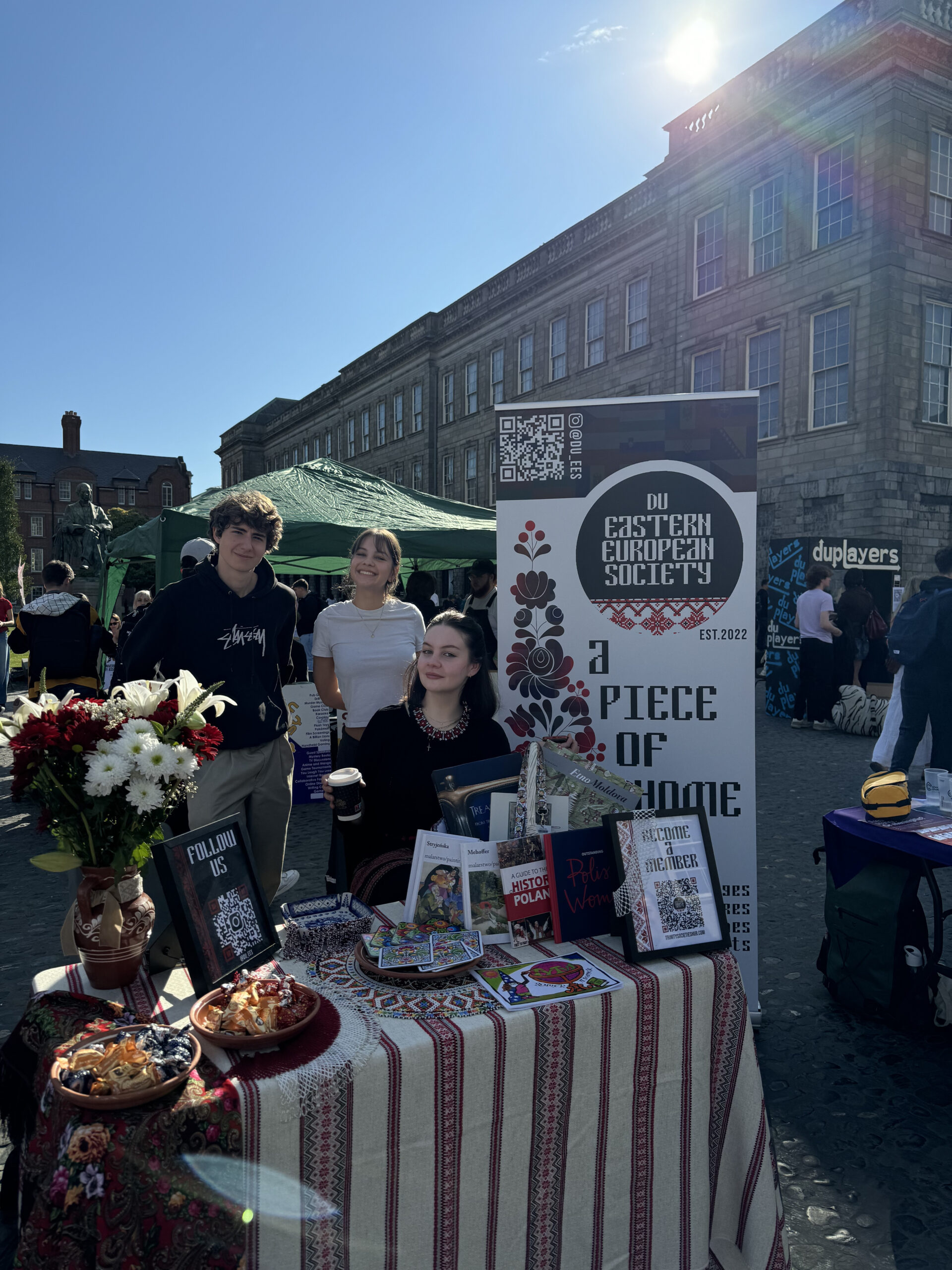
Since its founding in 2022, the DU Eastern European Society (DUEES) has grown not only in numbers but also in campus-wide recognition and support. Now in its first year as a post-provisional society, the group has taken off in popularity, with fun events attracting loads of members. But the society is much more than just a hotspot of well-organised karaoke nights, it’s a place where students find an unexpected but overwhelmingly heartwarming community.
Eastern Europe represents a myriad of cultural identities with a difficult past in terms of banding together, DUEES President Ksenia Goncharenko explains. “Perhaps because of our history of the Soviet Union, the whole idea of us all being united is [sometimes] matched with resistance, and that’s totally understandable, but this was an experiment,” she says. Goncharenko explains that this “experiment” has shown the beauty in connecting through our similarities rather than only differences. The society brings a newfound sense of togetherness not frequently seen across these cultural identities. “I find that it is something that should be explored more in our cultures because it is really beautiful. We have the same crafts, arts, design, and traditional clothing that doesn’t really get a lot of recognition in the public eye,” she says.
Just this semester alone, the society has boasted a record number of events. On November 4, the society collaborated with DU History society to host a guest lecture by Dr. Conor Daly discussing the legacy of Hubert Butler, an Irish essayist who was deeply immersed in Soviet literature. Many of Butler’s handwritten notes rest in the Trinity archives, which were one of the many fascinating topics of conversation that evening. Dr. Daly was recently awarded the Hubert Butler Essay prize and specialises in Central and Eastern European studies and his expertise culminated in an engaging event. Butler’s numerous translations and essays were discussed alongside conversation about the unique position of Soviet literature in modern-day society.
But DUEES makes room for all sorts of events, like their Moldovan and Polish wine tasting night in October. This event even takes the cake as Goncharenko’s favourite of the semester so far. The evening was sponsored by the Polish Wine Fest and the Polish Embassy of Ireland. It amassed quite a crowd and led many members to a newfound appreciation for Eastern European wines.
The cultural cohesiveness of Eastern European identities feels particularly new. Just this past year, UCD established its very first Eastern European Society as well. To celebrate this sense of togetherness, DUEES teamed up with UCD to host an epic Eastern European karaoke night on November 12. This was truly a first – there had never been a collaboration of two such societies before, as even five years ago they were not in full formation. This event brought the energy like never before. Kinga Brennan, a Business Studies and Russian student at Trinity explains that the karaoke night was one of her favourite events. “The vibes were immaculate,” she says. The night featured everything from traditional music to pop anthems of Eastern Europe. The diverse community brought the most welcoming atmosphere; no matter where you’re from, this collaboration had something for everyone. “It’s amazing to see how everyone was so friendly with each other, as we saw with the UCD collab,” Ia Khachirashvili, a third-year sociology student says.
Although separate cultural societies existed before DUEES, such as the Russian society, the founders of DUEES wanted to bring another level of cultural inclusiveness to Trinity. “There’s equally a lot of Polish, Romanian, [and] Moldovan students, as well as smaller communities like Lithuanians, Slovakians or Czech people. We really wanted to have a society that would provide a space for people to feel like they’re back at home [and] connect with each other,” Goncharenko explains. This kickstart of such a space instantly took off. The petition to initiate DUEES as a society was eagerly signed by Eastern European students and Irish students alike.
Since its founding, DUEES continues to bring students together and serve as a catalyst for cultural connection. “I’ve made so many friends from other Eastern and Central European countries, and it’s been wonderful, and sometimes surprising, to learn how much we all have in common,” Brennan says. Goncharenko reminds incoming students to keep an open mind about joining DUEES. “Although uniting under the umbrella of Eastern Europe does not really come naturally to a lot of us, you can make it a place for you. Everyone can get involved. Just by attending, you contribute to creating this lovely space on campus where everyone can feel like they have their own little piece of home,” Goncharenko says.






